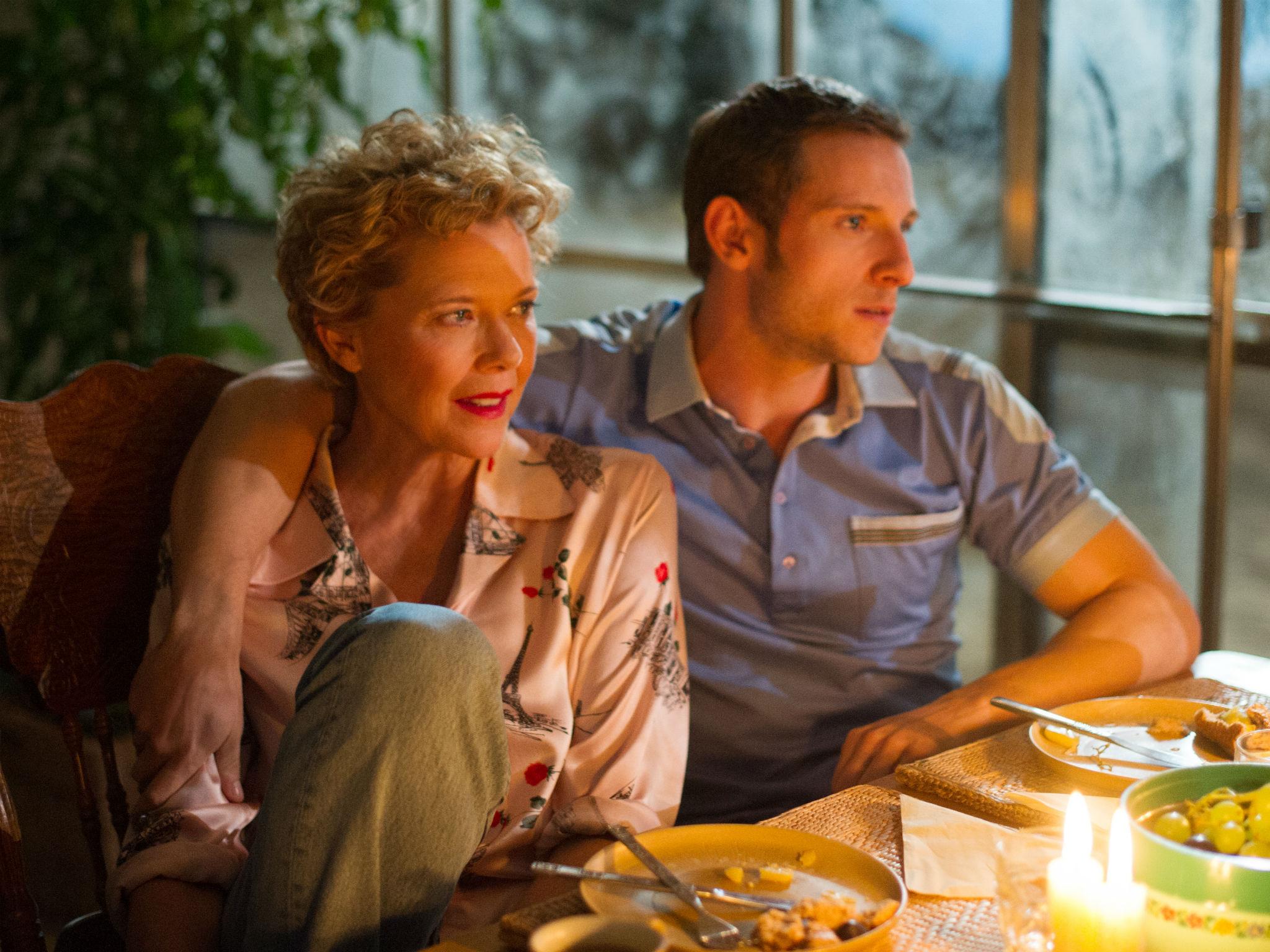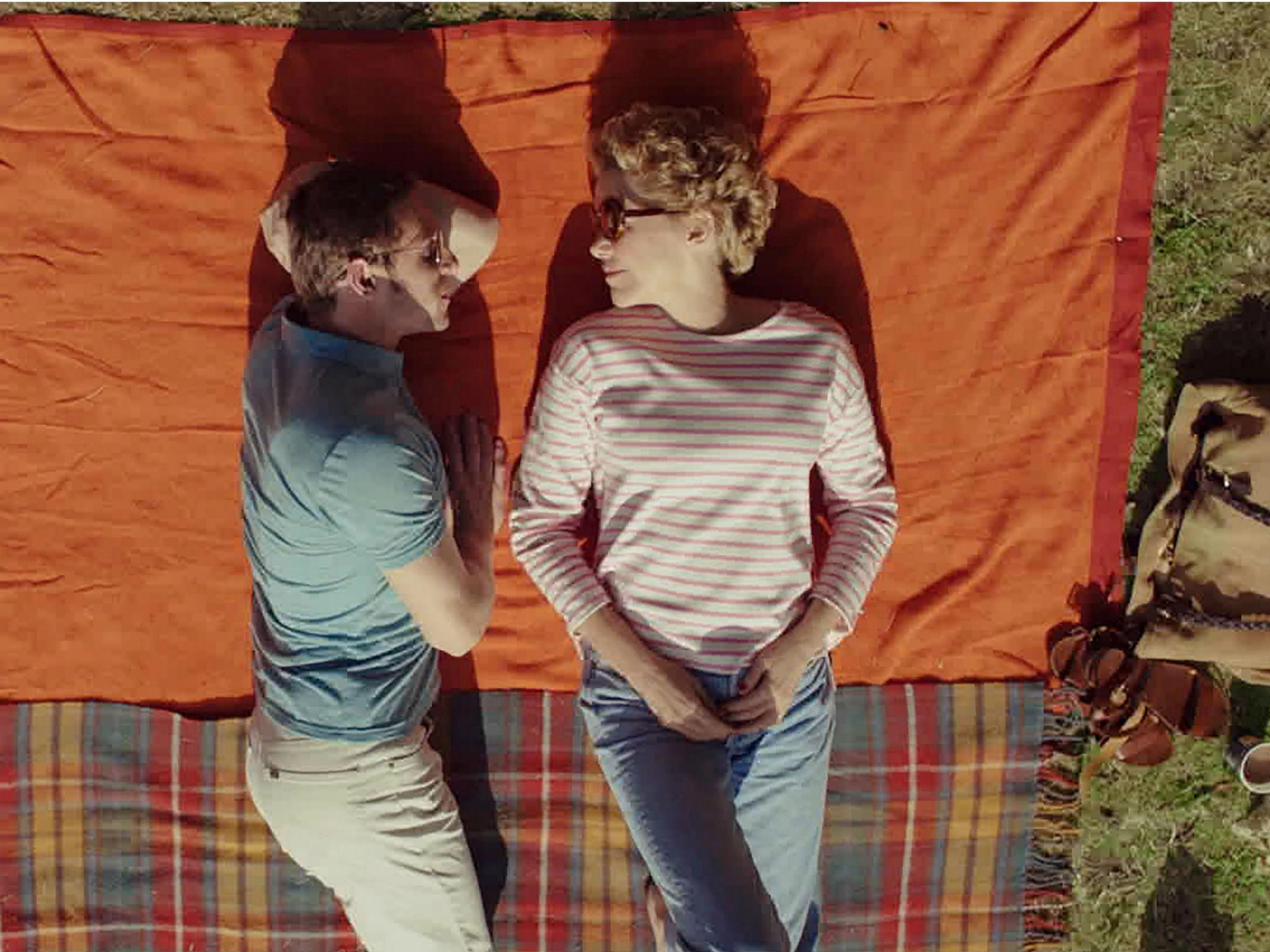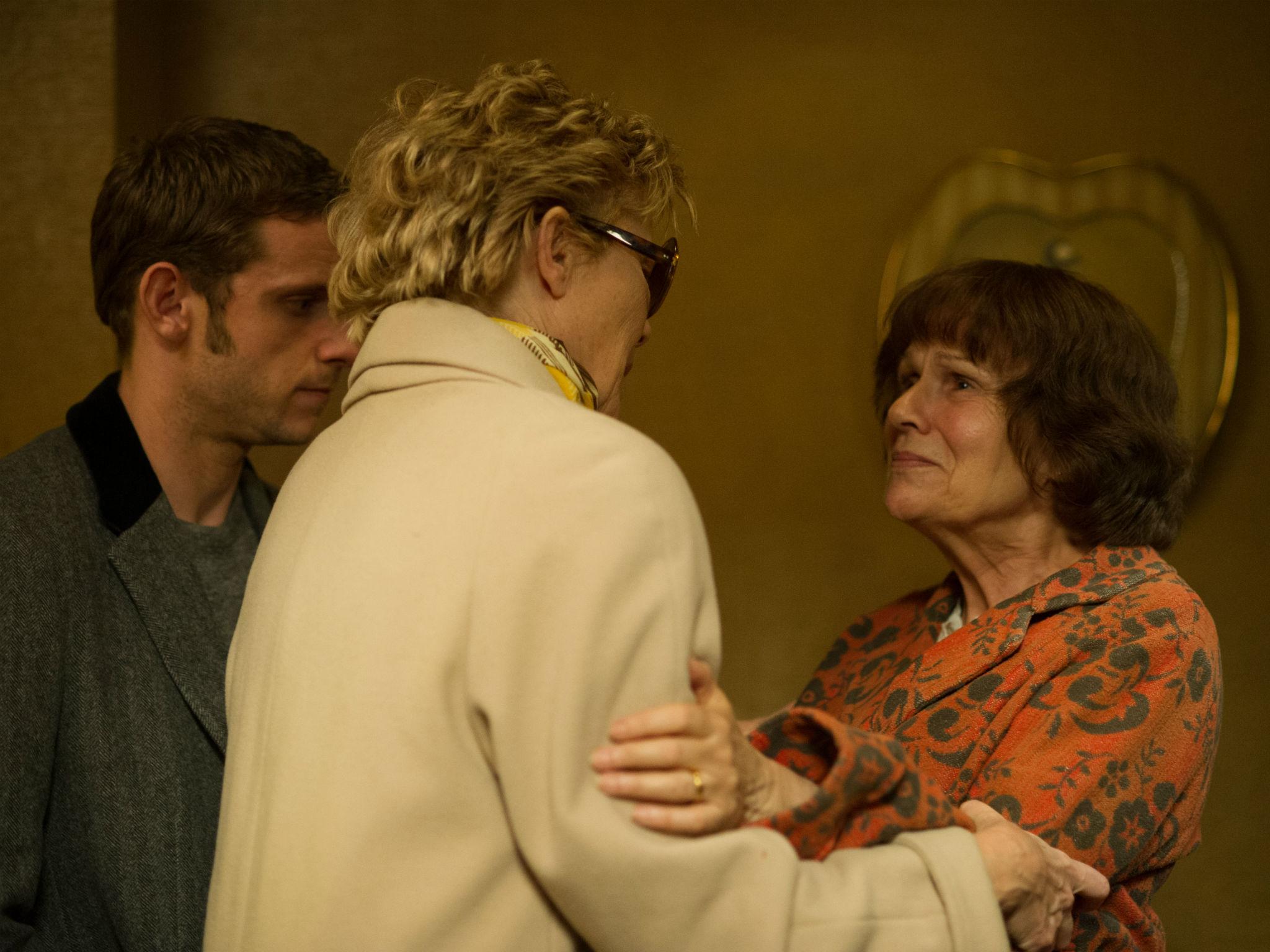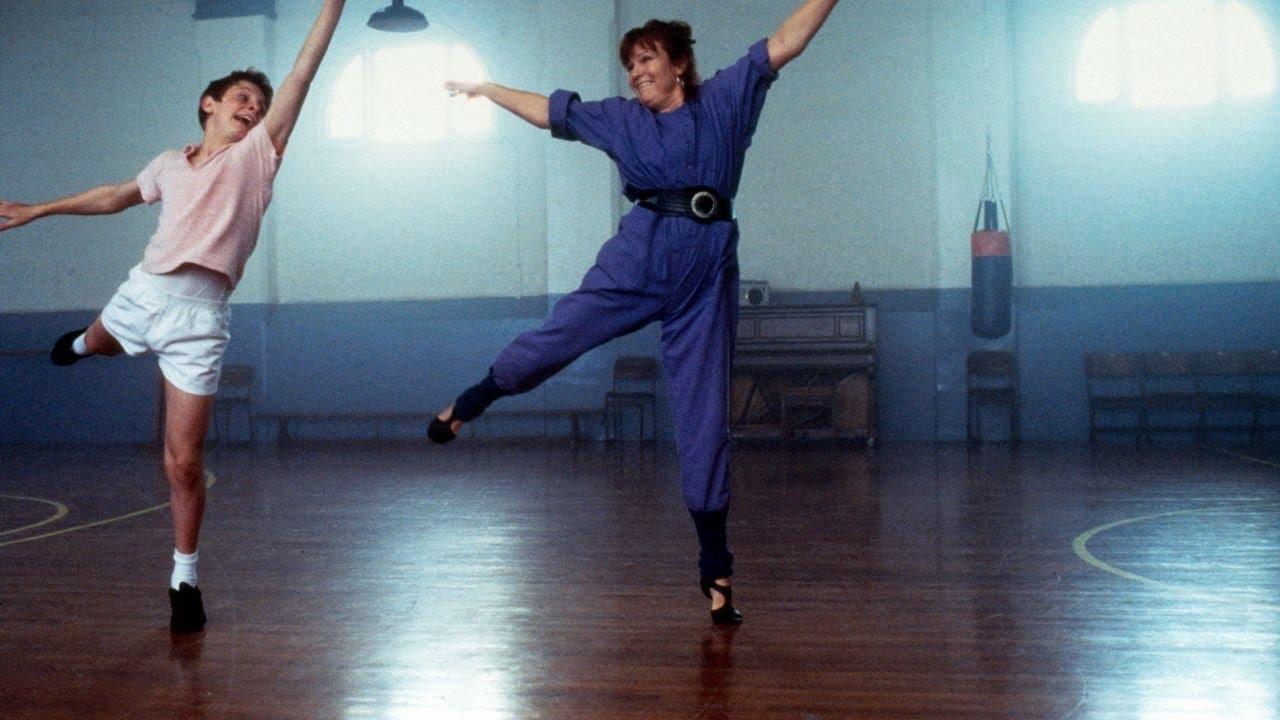Annette Bening and Jamie Bell interview: Working together on Film Stars Don't Die in Liverpool
Bening plays the Hollywood icon Gloria Grahame who finds romance and happiness with an unknown actor Peter Turner from Liverpool, played by Bell, in this real-life story

Your support helps us to tell the story
From reproductive rights to climate change to Big Tech, The Independent is on the ground when the story is developing. Whether it's investigating the financials of Elon Musk's pro-Trump PAC or producing our latest documentary, 'The A Word', which shines a light on the American women fighting for reproductive rights, we know how important it is to parse out the facts from the messaging.
At such a critical moment in US history, we need reporters on the ground. Your donation allows us to keep sending journalists to speak to both sides of the story.
The Independent is trusted by Americans across the entire political spectrum. And unlike many other quality news outlets, we choose not to lock Americans out of our reporting and analysis with paywalls. We believe quality journalism should be available to everyone, paid for by those who can afford it.
Your support makes all the difference.Inside the Liverpool Playhouse, extras are milling around wearing early-Eighties duds, mutton-chop sideburns and thick-rimmed glasses. The famed theatre is today playing host to a scene from Film Stars Don’t Die In Liverpool, the new film from Paul McGuigan (Sherlock). Starring Jamie Bell and Annette Bening, it’s a touching true story about real-life Hollywood icon Gloria Grahame and her relationship with an unknown young actor from Liverpool.
Today Bell – who plays the actor in question, Peter Turner – is dressed in green medical scrubs and white wellies. The Playhouse stage has been turned into a mocked-up hospital operating room for a scene from Alan Bleasdale farce Having A Ball, which Turner starred in back in 1981. “I could have you struck off, y’know,” Bell says, in a Scouse accent, as he bursts through some double-doors, waves a clipboard and examines a patient’s crotch.
The British actor is all too conscious that he’s not only playing a real person, who wrote a very personal memoir about his time with Grahame, but one who is very much involved in the production. “All you want to do – especially me because I’m playing him – is represent him well and respectfully and try to capture an essence of how he felt about this woman – someone who changed his life forever,” says Bell. “Still to this day, she’s one of the most important people he ever came across.”
Back in 1979, when Turner met Grahame, he was an aspiring thesp in his mid-twenties living in London’s Primrose Hill; Grahame, then 55, was in the same boarding house, scratching out a living in regional theatre. But in the 1950s, it was a different story. She won an Oscar for The Bad and The Beautiful, married director Nicholas Ray (one of four husbands, he directed her in film noir In A Lonely Place) and lived next door to Humphrey Bogart and Lauren Bacall.

Like Bell, Bening mined Turner for as much detail as possible. “When you meet Peter, I felt like I understood Gloria,” she tells me, when we meet in a London hotel after production wraps. “She had never had a relationship with a man like him. She’d been with really interesting guys – Nick Ray, wildly interesting, smart. But Peter is this regular guy from Liverpool. He adored her in a way I just suspect nobody ever had. I certainly used that and we talked to Peter a lot about how they were together.”
Curiously, the 59-year-old Bening was first introduced to Grahame’s work when she played the seductress in Stephen Frears’s 1990 noir The Grifters, the film that gained her the first of her four Oscar nominations (though a fifth may be incoming, if the stars align here). McGuigan marvelled at Bening’s likeness to Grahame back then. “I did this thing where I took a picture of Gloria Grahame and a picture of Annette from The Grifters and put them together and it’s seamless. It’s incredible.”

Bening revisited Grahame’s work, some of which features in a season of her films at London’s BFI Southbank this month, with fresh eyes. “The thing that’s really struck me – no pun intended – was how often she was getting beaten up,” she remarks. “She was the bad girl, right? So in that period, in those films, if you were playing that woman, a guy gives you a smack and no one batted an eye. Not only that, but really beaten up.”
Grahame famously had hot coffee thrown in her face by Lee Marvin in a memorable scene in Fritz Lang’s The Big Heat; likewise, in Lang’s Human Desire her unfaithful wife was knocked around by Broderick Crawford’s insanely jealous husband. But her film career never again hit the heights of her 1950s glory days. While she had four children with three different husbands, including Ray, meeting Turner – just two years before she died of breast cancer – was a key moment.
“She fell in love with Liverpool,” says McGuigan. “She fell in love with the idea of the family unit. It was exotic to someone from Hollywood; it was strange to think but I guess it is – it’s the Fab Four, the Beatles, it’s Liverpool, the centre of music at the time. To go there and find Peter has this family, this close-knit family, was something that Gloria never had. She always wanted it but she never achieved it because of her personal life. I think that this was what interested more than talking about Hollywood. I think she felt Hollywood turned her back on her.”

While today’s on-set action is lightly comic, as McGuigan recreates snatches of the Bleasdale play briefly featured within the film, Bell estimates it’s been difficult for Turner to relive this poignant affair. “I think it was quite overwhelming for him,” says Bell. “A lot of it is still very fresh in his mind, and he recounts things incredibly vividly. It’s all there in his mind. He recounts things incredibly specifically. It’s all there in that book. It’s all remembered so well and so specifically. It doesn’t dull in his memory at all. He’s very emotional about it.
Another tear-jerking moment was Bell’s reunion with Julie Walters, who plays Turner’s mother. Their previous film, of course, was Bell’s beloved Bafta-winning breakthrough Billy Elliot. “When I found out she was going to play my mum, I was so surprised by that casting choice,” he admits. “I just thought, ‘Isn’t that going to draw immediate comparisons?’” Not in the mind of McGuigan, who was blissfully ignorant of all things Billy Elliot. “The first time I met Jamie, I said, ‘Have you worked with Julie before?’ He was like, ‘What?’”
Bell clearly holds Walters in huge esteem, recounting how – as a youngster – his mother bought him a new shirt to wear on the first day he met her on the Billy Elliot set. “She was like, ‘You have to wear a nice shirt to meet Julie Walters! You can’t wear your Arsenal shirt!’” This time, the whole cast and crew were in awe. “Stephen Graham, who [plays Turner’s brother and] portrays mostly fierce people – troubled, aggressive men – was reduced to a child when Julie Walters came around.”
With the film produced by Barbara Broccoli, best known for her work on the James Bond franchise, Film Stars certainly has a Hollywood pedigree, as well as the best of British. Yet it’s not a film about the glamour and glitz of Tinseltown, says McGuigan. “That’s what’s good about it. It’s a story about two ordinary people who are just extraordinarily different from each other. One has an extraordinary life and one has an extraordinary ordinary life.”
‘Film Stars Don’t Die In Liverpool’ opens on 17 November
Join our commenting forum
Join thought-provoking conversations, follow other Independent readers and see their replies
0Comments